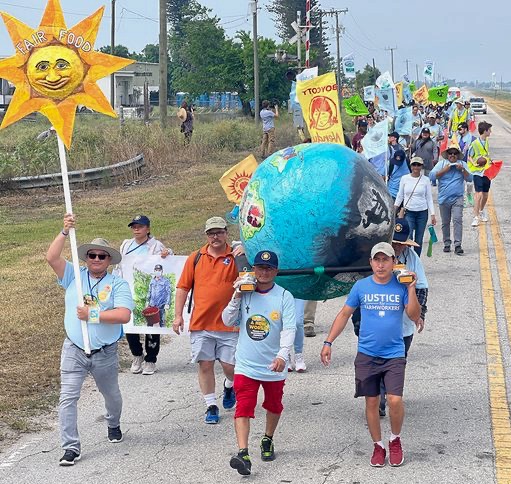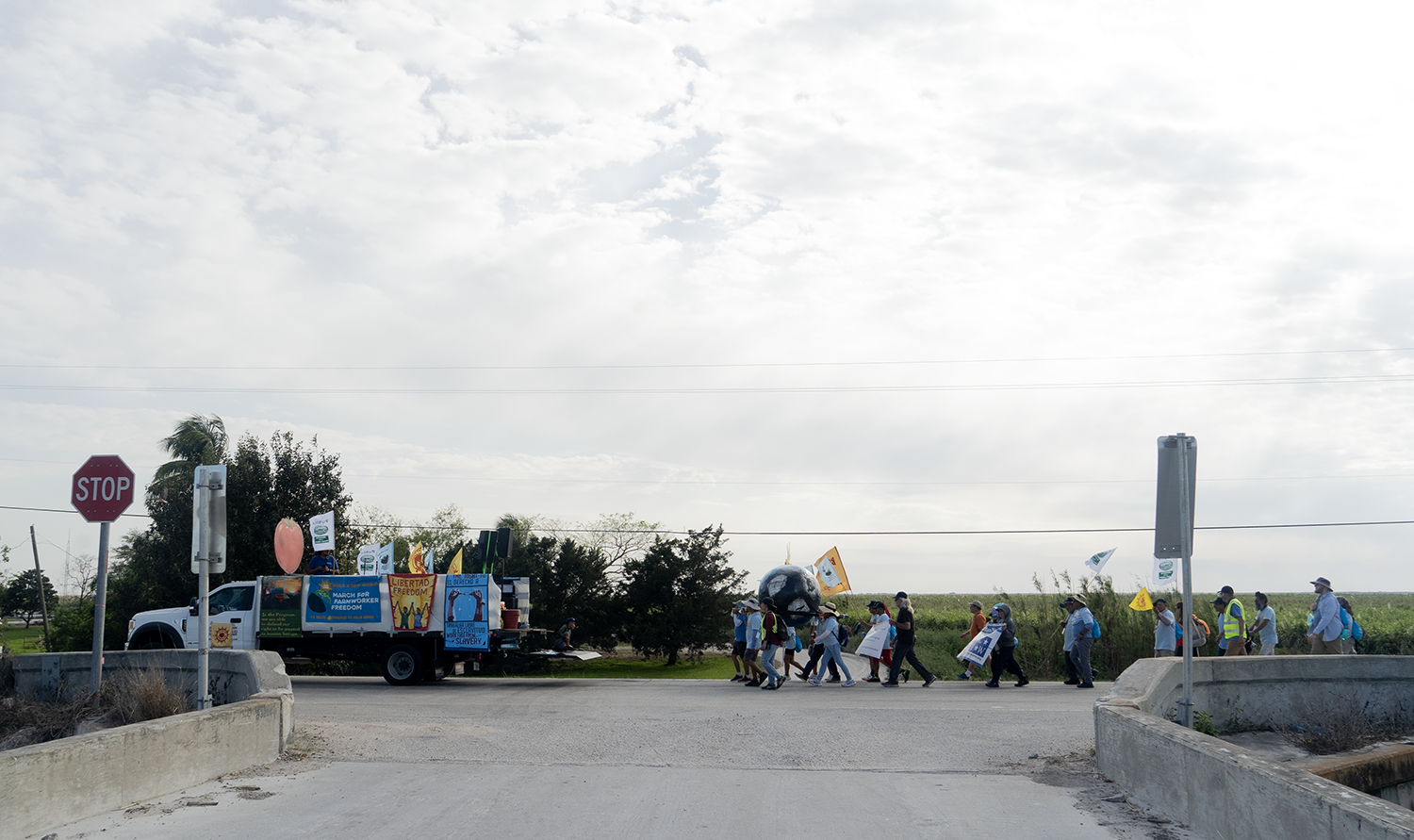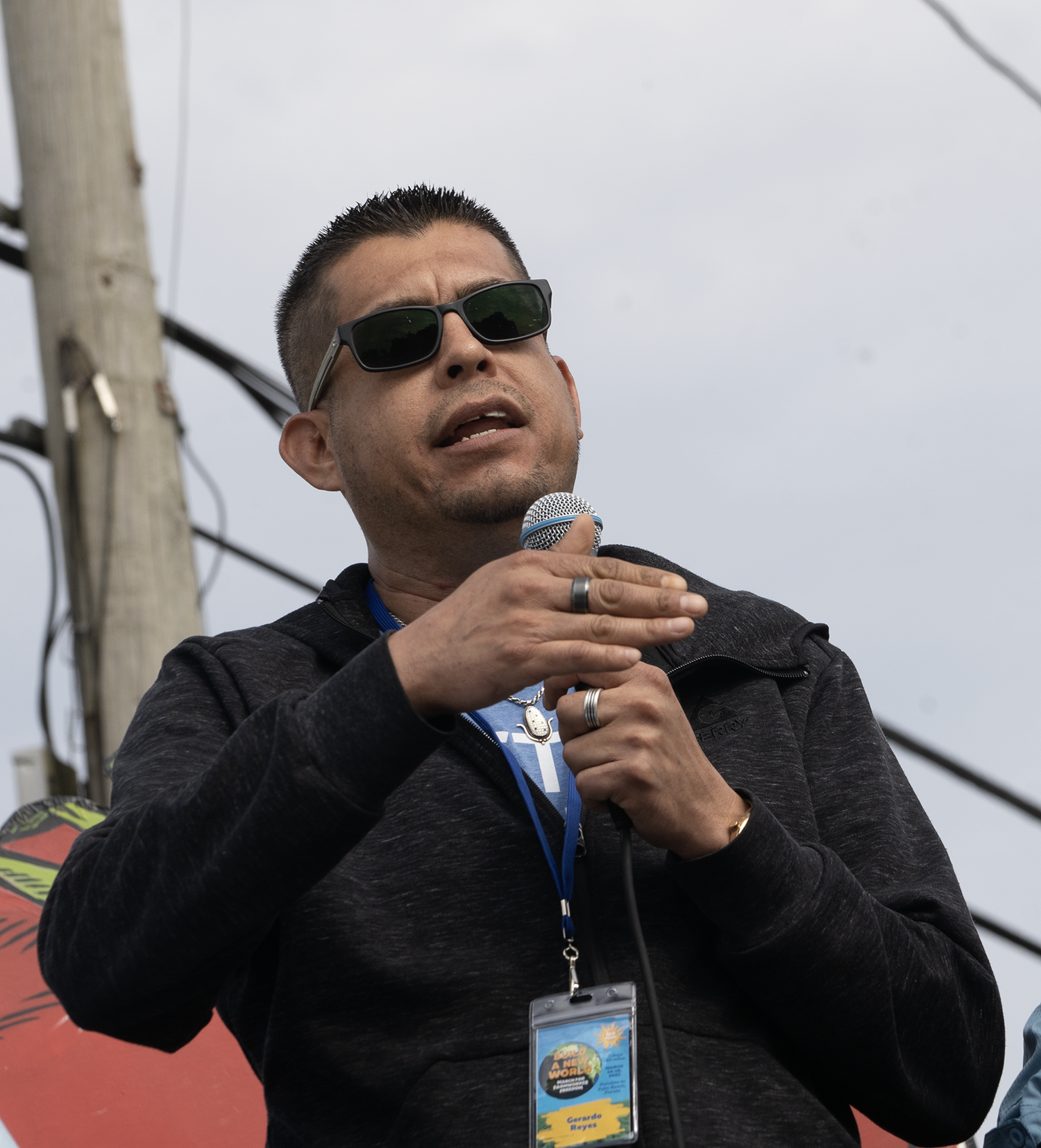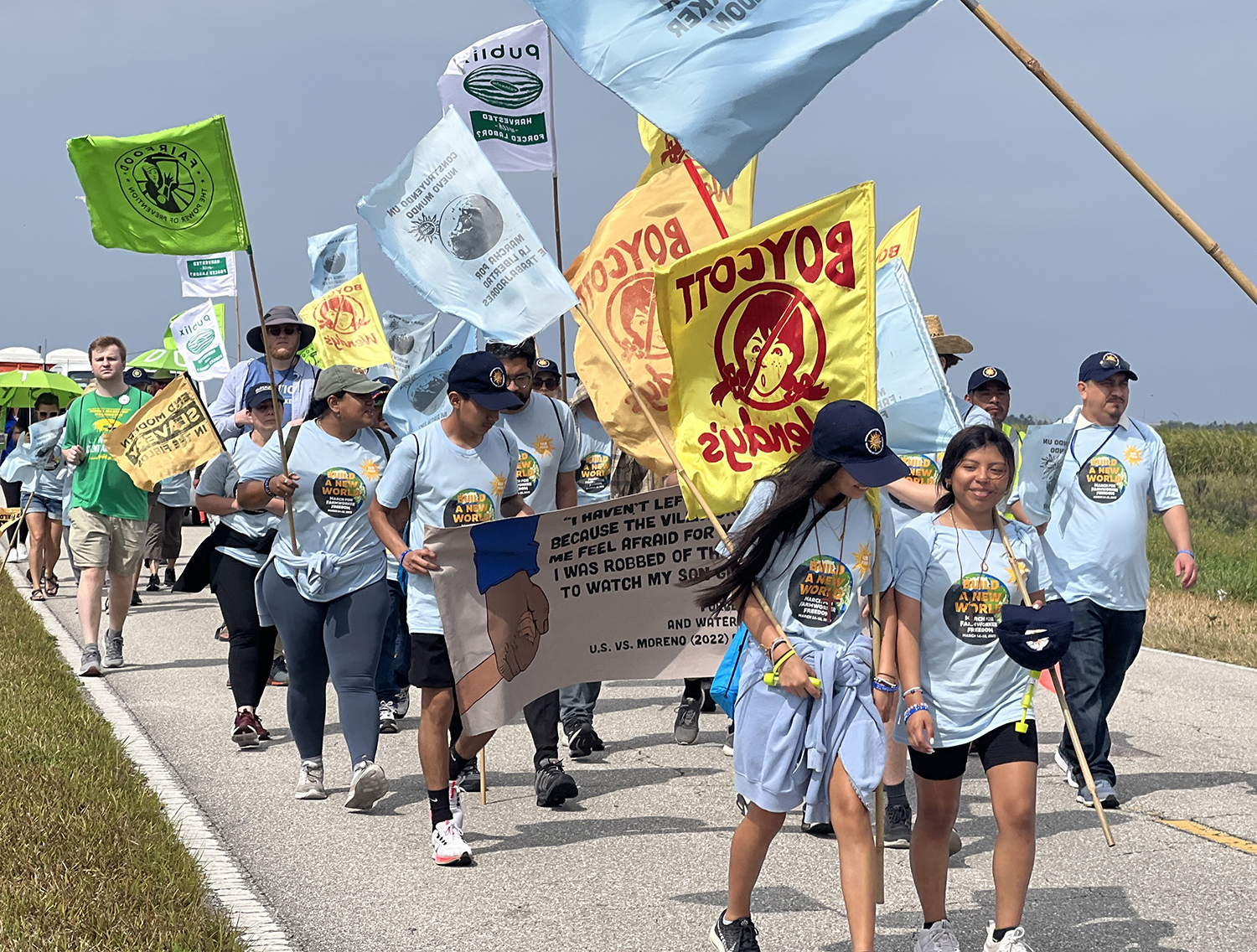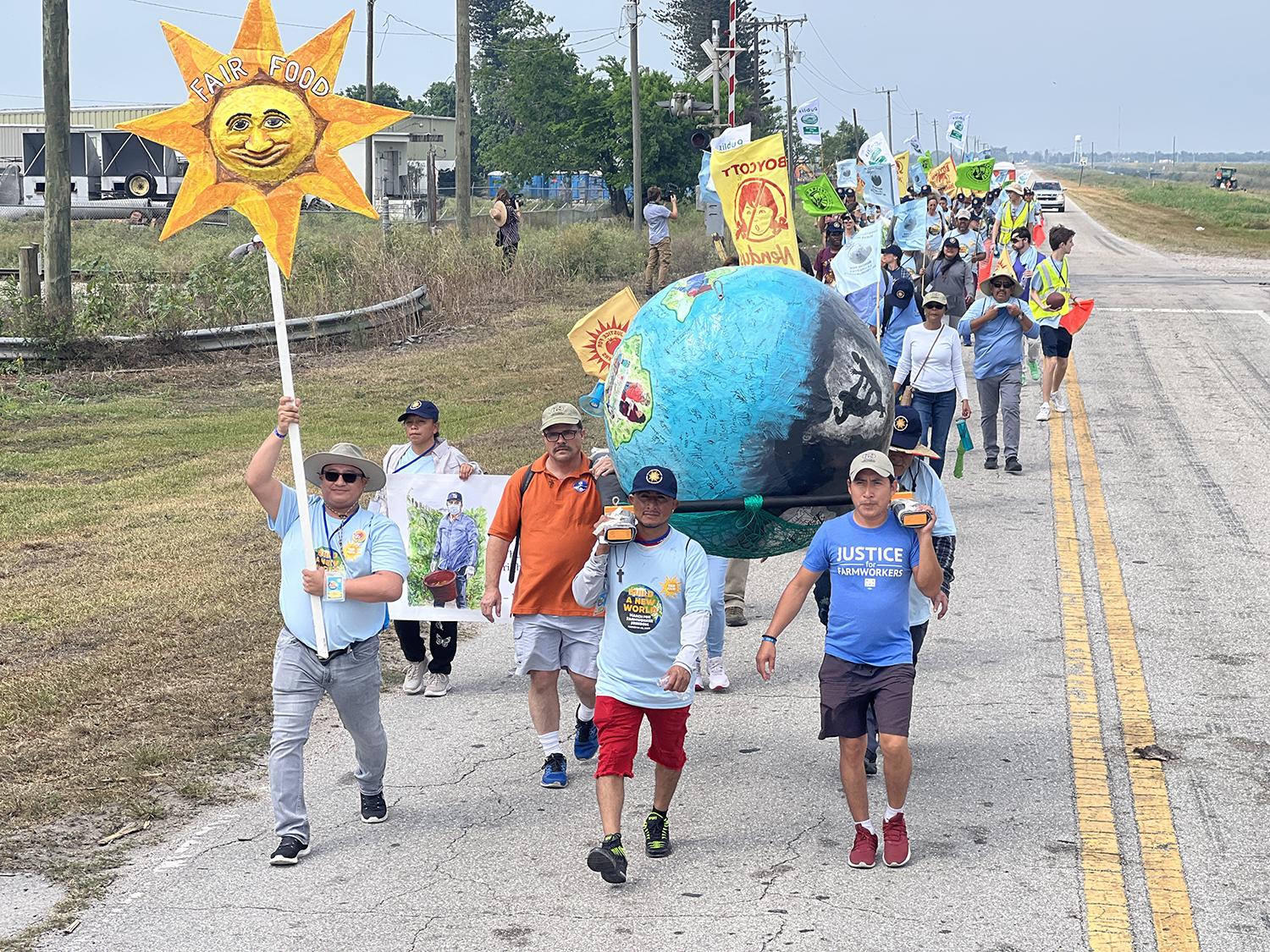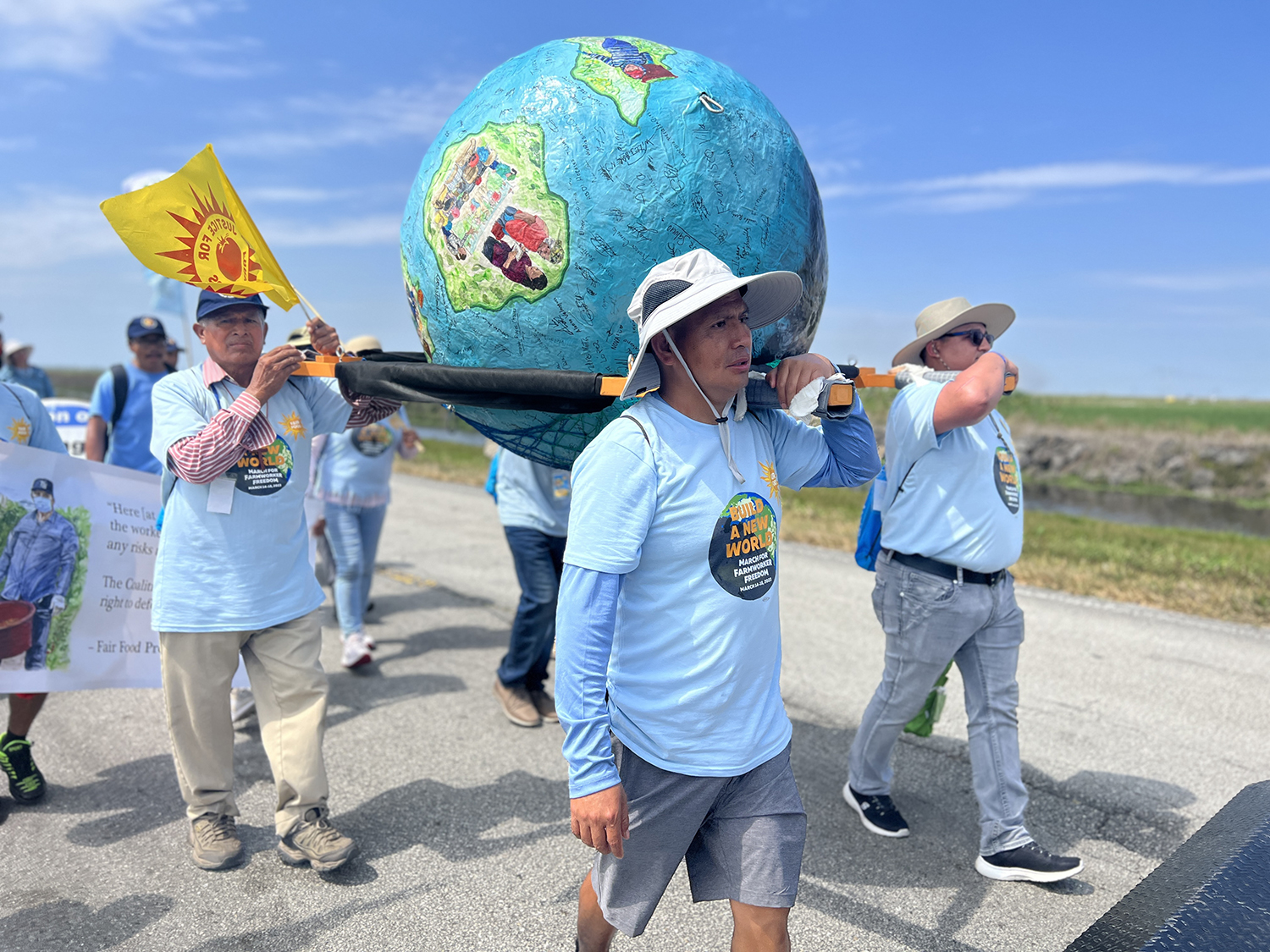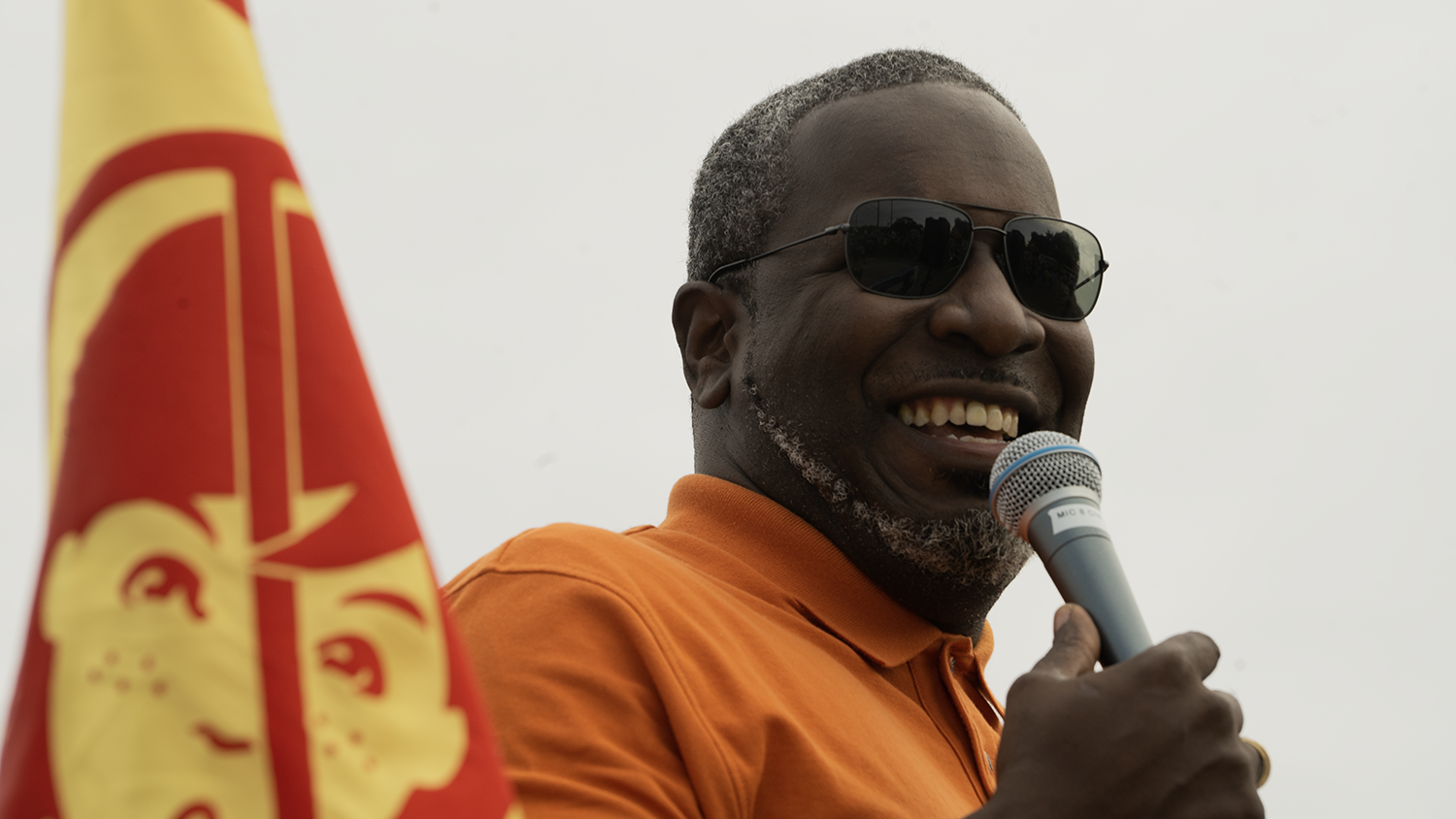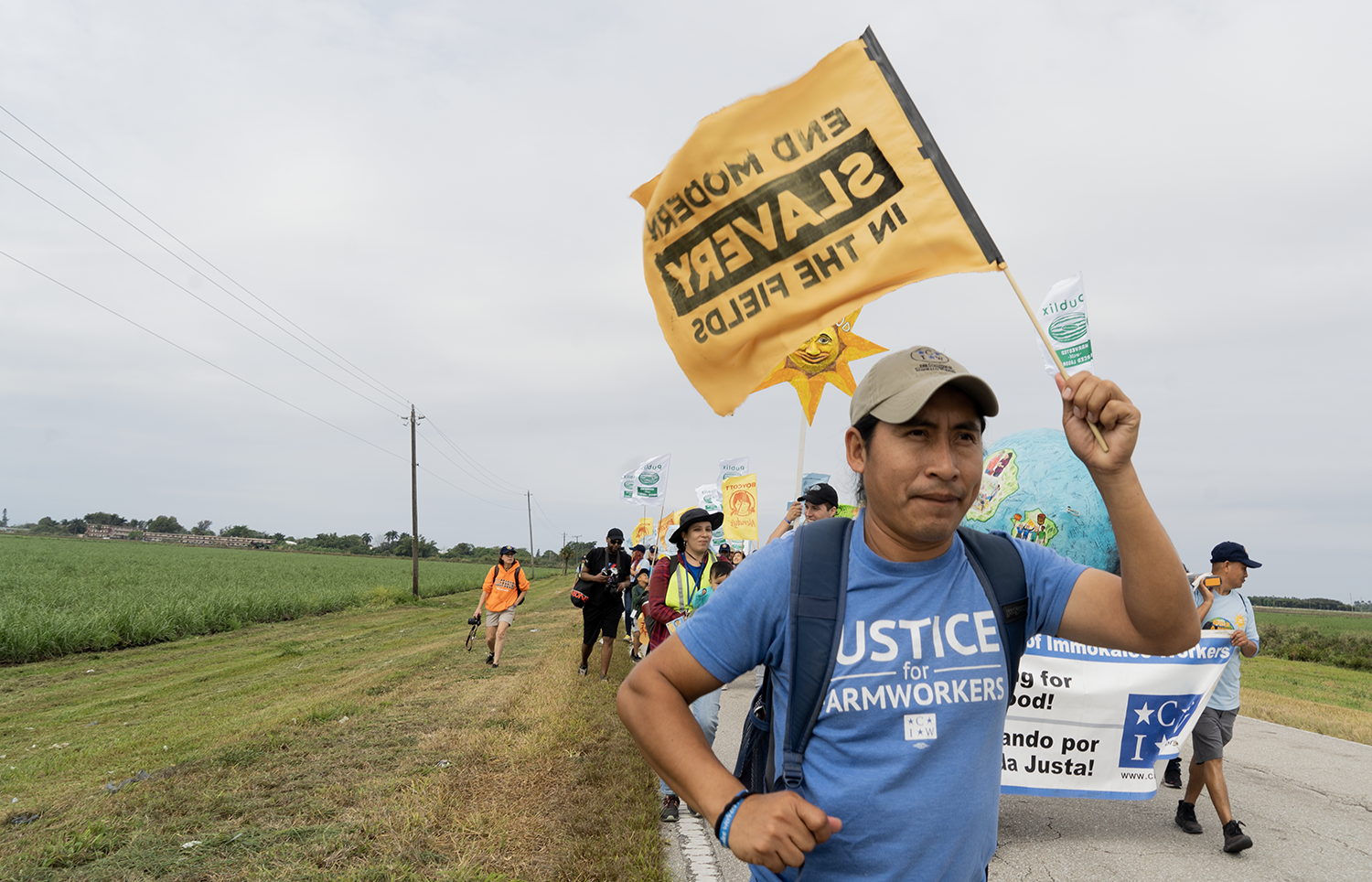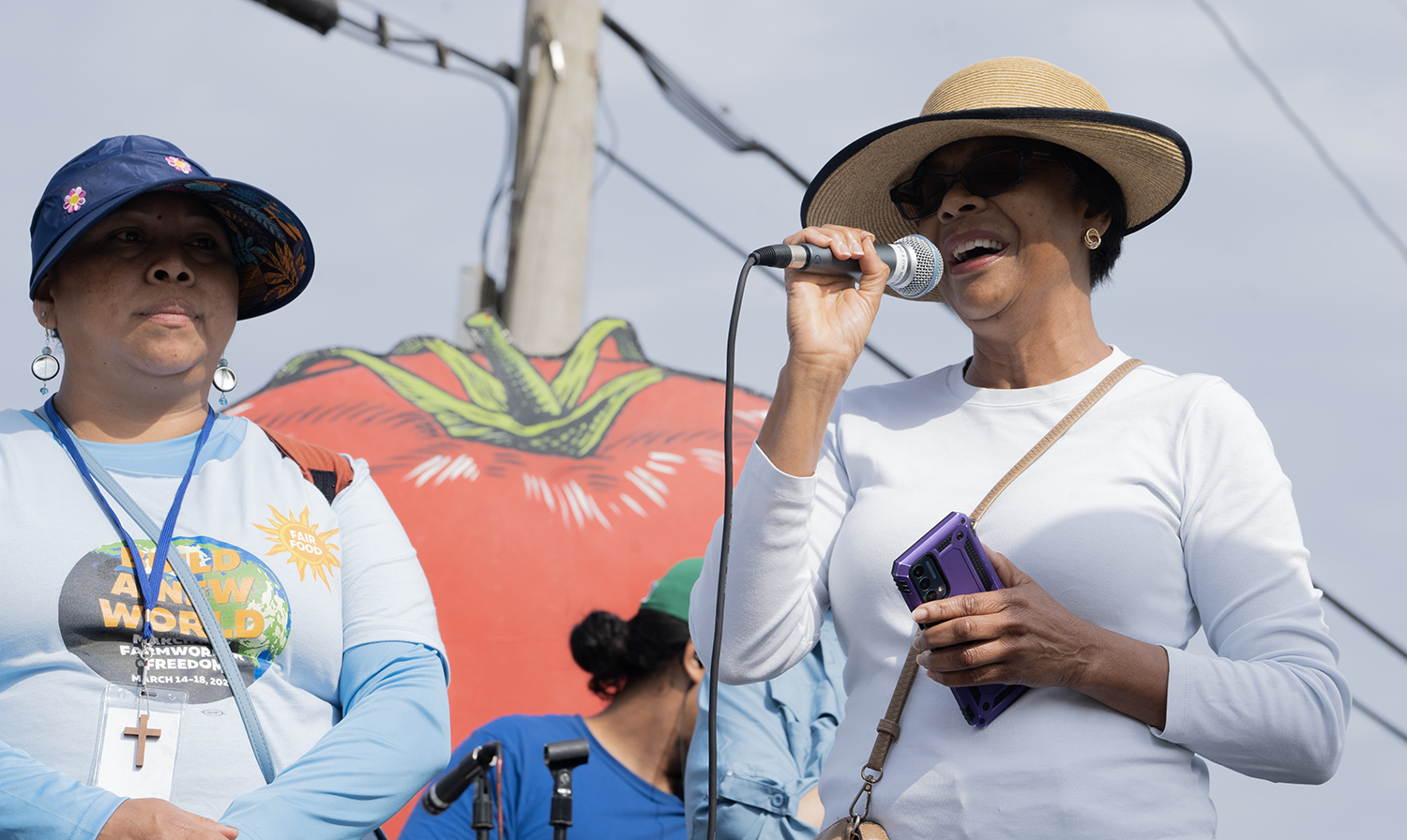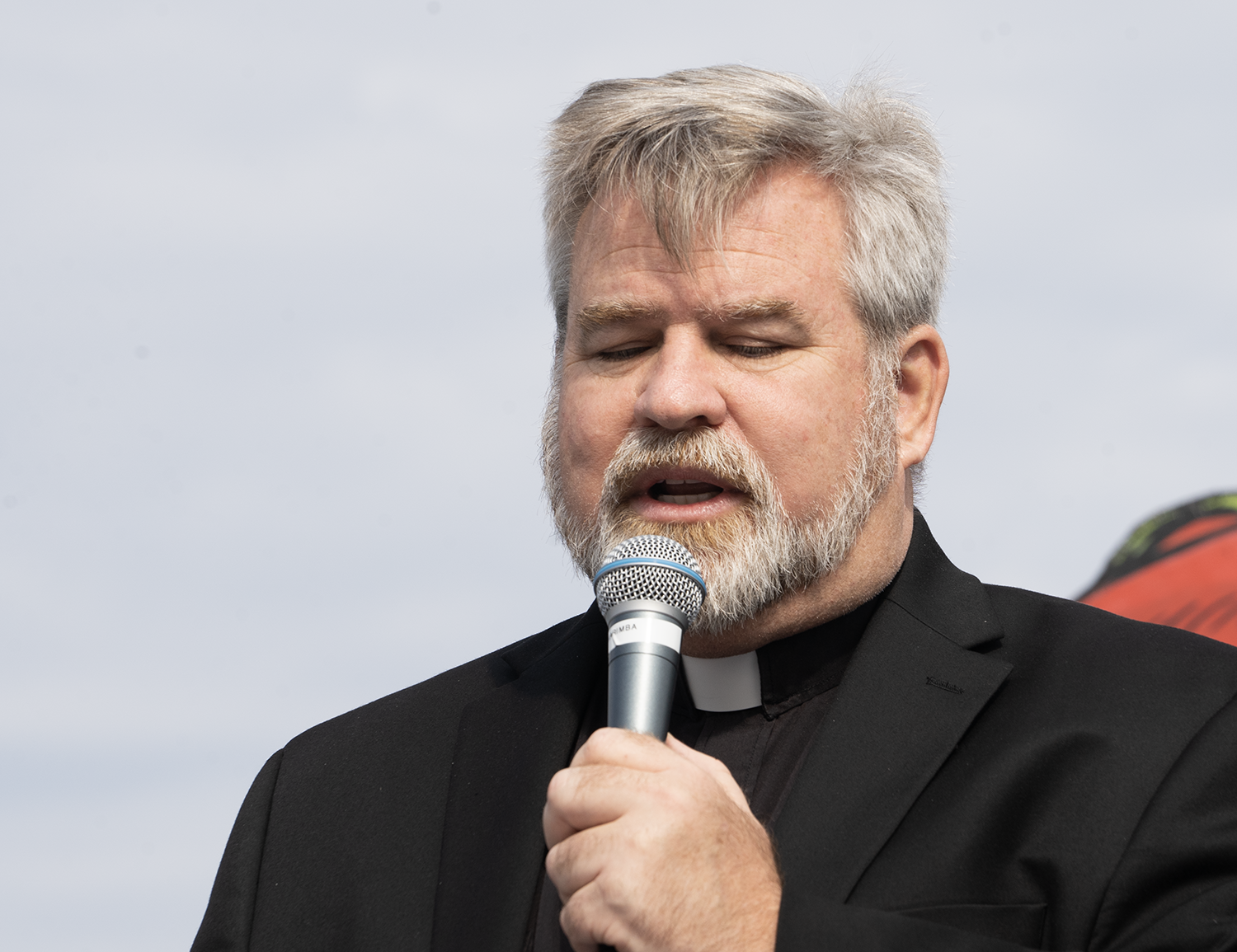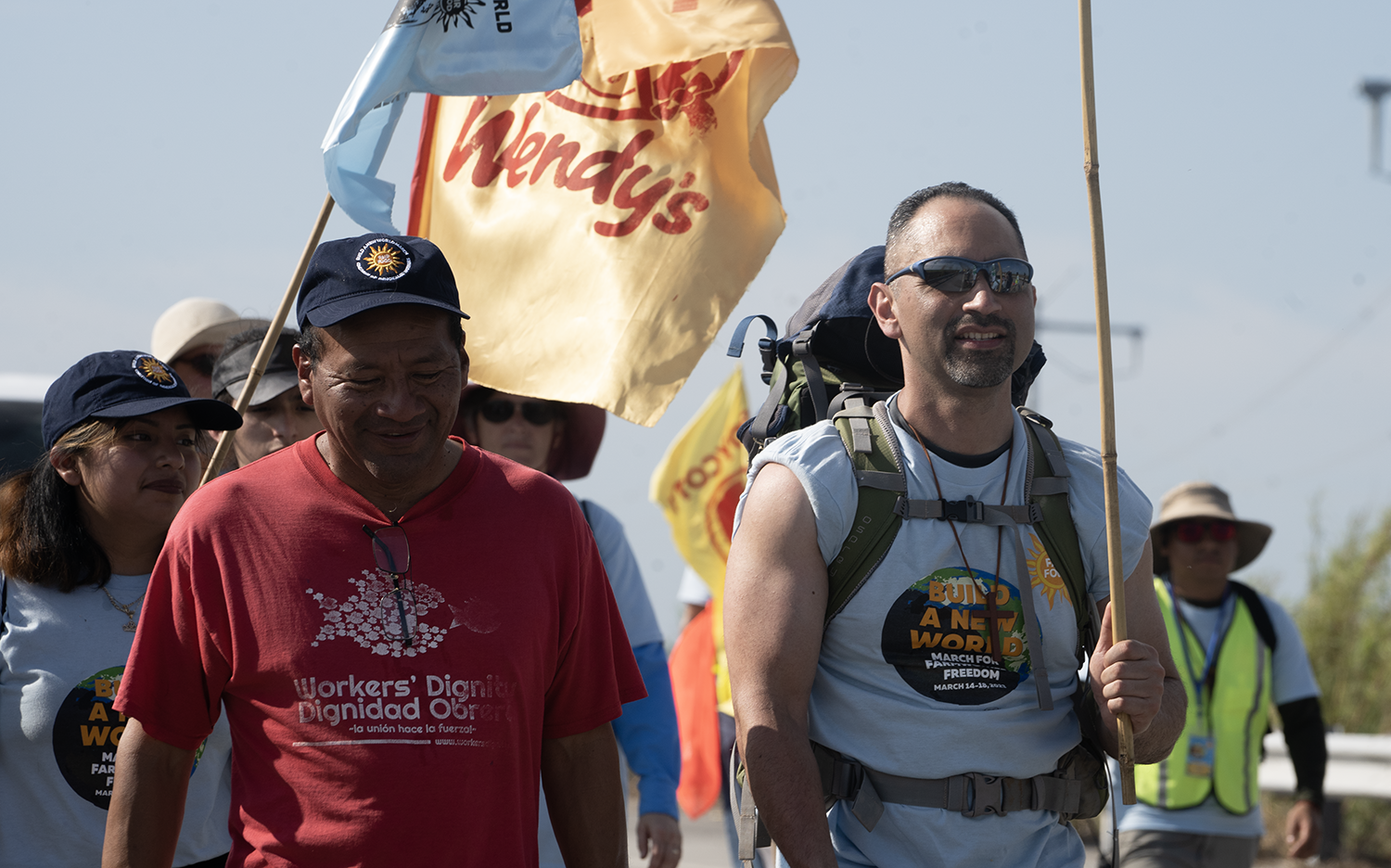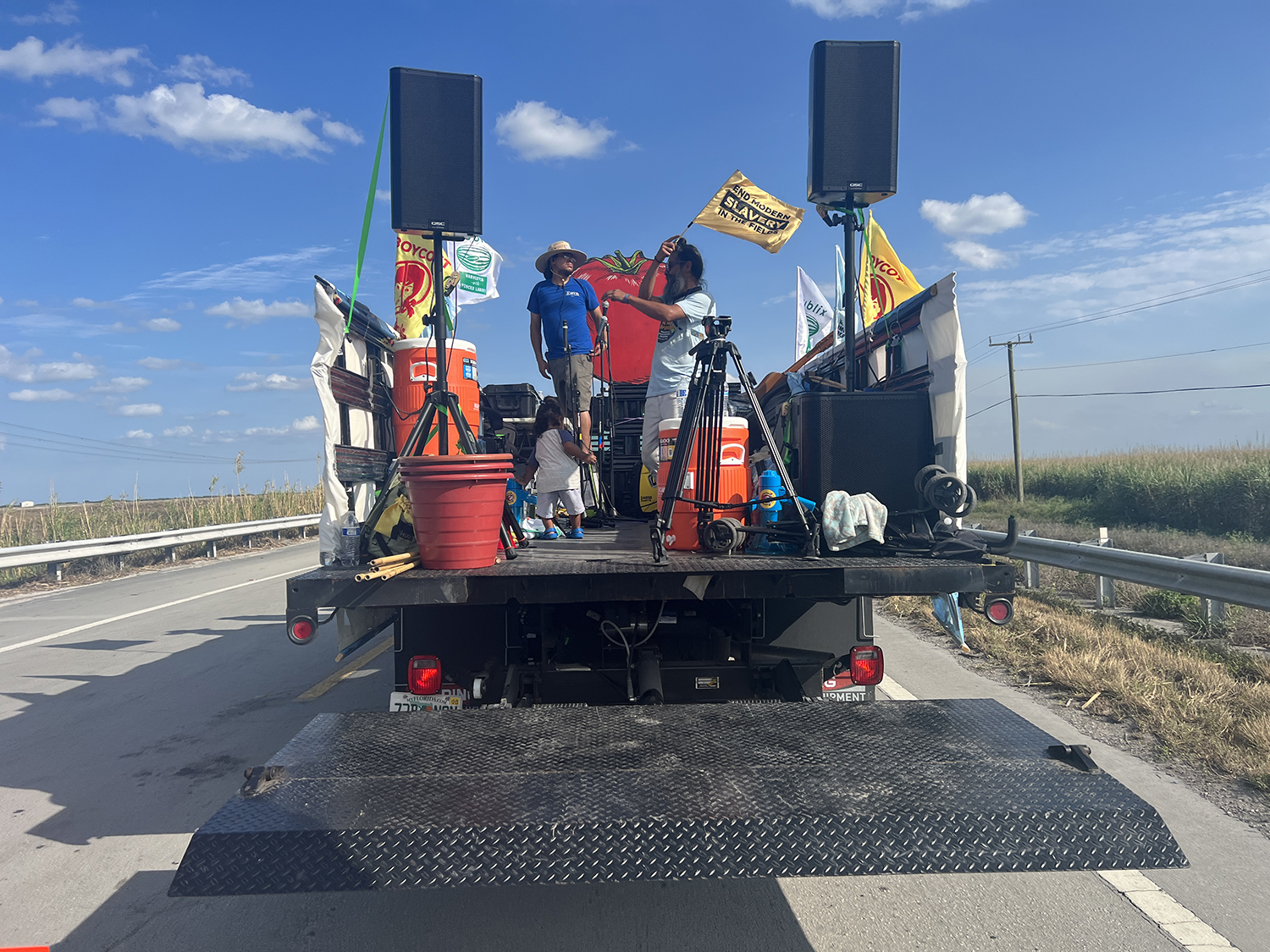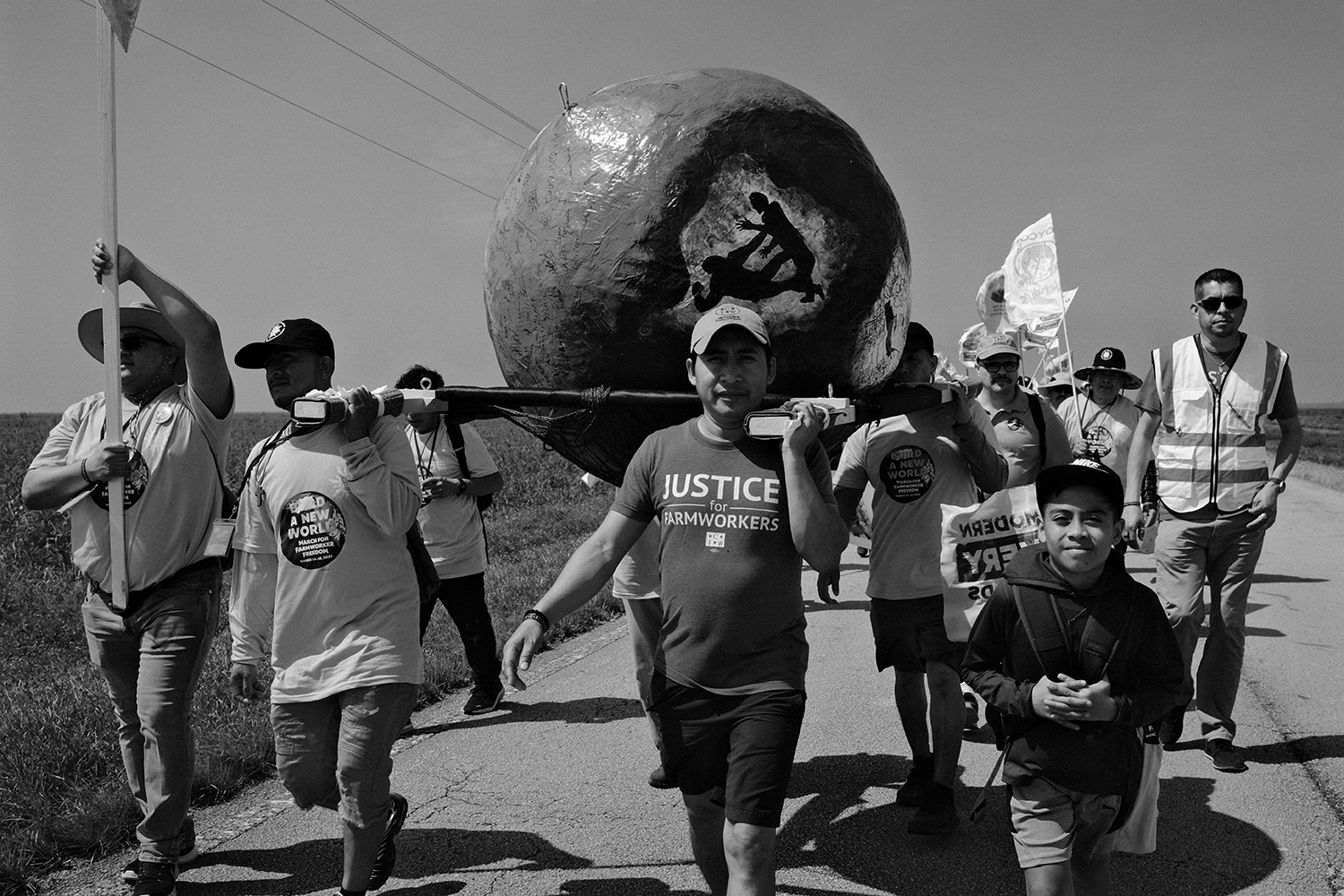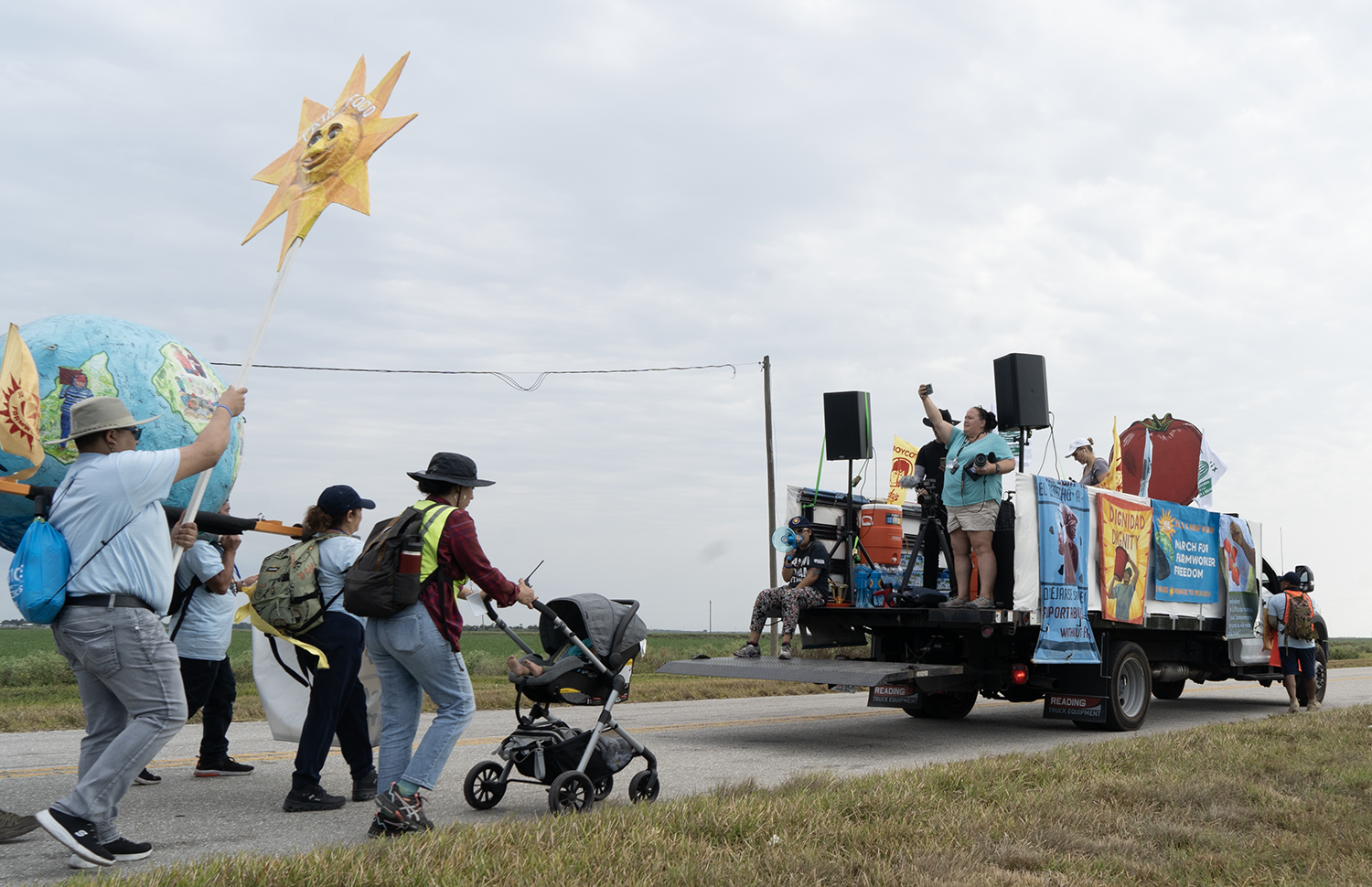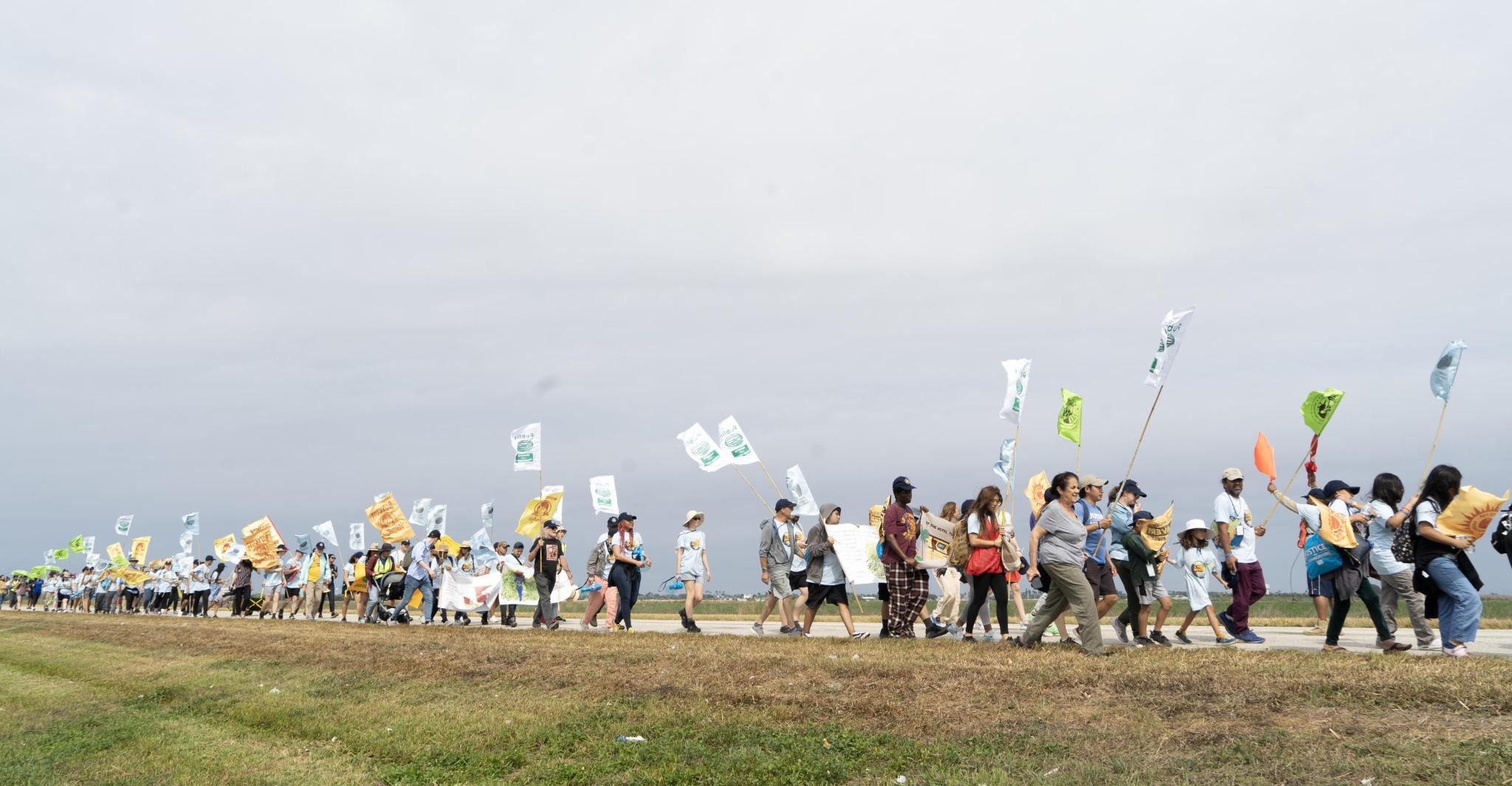
Check out the video, photos, and media round-up from Day 1 of the Build a New World March!
Fast Company: “Lupe Gonzalo had been harvesting tomatoes, blueberries, sweet potatoes, and other crops for a little over a decade when, one day in 2011, workers with the Coalition of Immokalee Workers showed up at her farm. CIW, a worker-led human rights organization in Immokalee, Florida, was there to hold an education session for the farmworkers. ‘They started to talk about our rights, and the changes being implemented in the fields,’ Gonzalo says, speaking through a translator. ‘And it was something that I hadn’t heard of before—the right to take a break, the right to not face things like sexual harassment while working… It was a very sudden change, and a big difference between the fields that had the Fair Food Program and the ones that didn’t.'”…
… “Nowhere was there more fear of retaliation and blacklisting than on farms,” Fine says. “So what they’ve made possible is for workers to feel like they won’t get fired if they come forward, won’t get punished if they come forward, and won’t get blacklisted if they come forward.” (Janice Fine, professor at the School of Management and Labor Relations at Rutgers University)
WINK News (CBS affiliate): “I feel like it’s an honor to walk. Paying people a living wage and having them work in dignity, it’s just a no-brainer.” (Ann Sundberg, ally from Sarasota)
In the early, pre-dawn hours of Monday morning, in houses throughout Immokalee and across the state, farmworkers and their allies packed their bags, left their homes, and made their way to the small, agricultural community of Pahokee, Florida, for Day 1 of the 5-day, 50-mile March to Build a New World.
In Immokalee, workers gathered at the CIW headquarters, loaded a bus and a caravan of support vehicles with enough march supplies for nearly a week, and headed east for the 2 and 1/2 hour trip to Pahokee. Once there, they gathered with allies from across Florida — and from states as far away as Mississippi and Minnesota — in the dusty street outside the dilapidated labor camp where workers were housed in the latest federal forced labor case, US vs. Moreno. Following an emotional rally to kick off their journey, over 100 workers and allies then began the long walk to the luxury store-lined avenues of Palm Beach, nearly 50 miles — and an entire universe — away from the cane fields and grinding poverty of the central Florida towns whose vast sugar plantations and vegetables fields feed the country, and enrich many a coastal billionaire.
Before reaching the coast, however, the marchers would have to trek, step by step, along a thin strip of asphalt dwarfed by miles and miles of endless farm fields, the isolation, heat, and harsh conditions they would face only a faint echo of the lives of those whose abuse and exploitation — loading, unloading, and packing hundreds of thousands of pounds of watermelons in 100 degree heat every day, for little or no pay, under the threat of violence if they complained or tried to escape — inspired the 50-mile march. The marchers’ own commitment and sacrifice inspired a number of news outlets to join them for the rally and the first miles of their journey, and we’ve collected the first stories to emerge from the action here below, as well as a photo gallery of some of the day’s highlights.
Be sure to check back again tomorrow for all the video, photos, and media from Day 2.
Video, Day 1:
Photos, Day 1:
Media Round-Up, Day 1:
- Fast Company, “One Florida Program Is Helping Eradicate Modern-day Slavery on Farms,” 3/14/23
- WINK News, “Immokalee Farmworkers March to Protest Mistreatment of Migrants,” 3/14/23
- CBS12, “Farmworkers March 50 Miles to Protest Labor Abuse and Mistreatment,” 3/14/23
And as a final treat, here’s a video courtesy of long-time legal partners and marchers with the Lomax Legal team:

